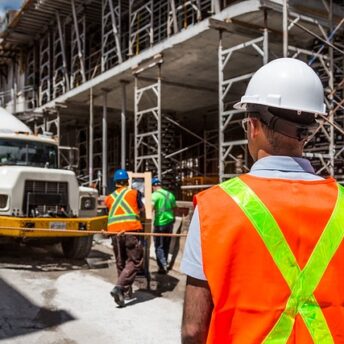Construction projects often involve complex contractual relationships between multiple parties, including clients, contractors, subcontractors, consultants, and suppliers. In some cases, third parties may have rights or interests in the construction contract, even though they are not directly involved in its formation or execution. At Blackstone Solicitors, we understand the intricacies of third-party rights in construction contracts and offer legal guidance to clients across England and Wales. In this article, Third Party Rights In Construction Contracts, we will delve deeper into the subject.
Please click here to find out more about our Construction Law services
Free Initial Telephone Discussion
For a free initial discussion with a member of our New Enquiries Team, get in touch with us today. We are experienced in dealing with all the legal aspects of third party rights in construction contracts and once instructed, we will review your situation and discuss the options open to you in a clear and approachable manner. Early expert legal assistance can help ensure you are on the best possible footing from the start and also avoid the stress of dealing with these issues on your own. Simply call us on 0345 901 0445 or click here to make a free enquiry and a member of the team will get back to you.
Understanding Third Party Rights
Third-party rights in construction contracts refer to the rights and interests of individuals or entities who are not parties to the contract but may have a legal interest in its performance or outcome. These third parties may include beneficiaries, assignees, successors, or other parties who have a direct or indirect interest in the contract.
Third-party rights may arise in various scenarios, such as:
- Beneficiaries: A client may enter into a construction contract with a contractor for the construction of a building. However, the building may ultimately be used or occupied by a third-party beneficiary, such as a tenant, purchaser, or end-user. Although the beneficiary is not a party to the construction contract, they may have rights or interests in the contract’s performance, such as the right to occupy the completed building or enforce certain quality standards.
- Assignees: Parties to a construction contract may assign their rights or obligations under the contract to a third party. For example, a contractor may assign its rights to receive payment to a subcontractor or assign its obligations to perform certain work to a third-party supplier. These assignees may acquire rights under the contract and enforce them against the other parties.
- Successors: In some cases, third parties may acquire rights or interests in a construction contract by operation of law. For example, if a contractor becomes insolvent or ceases trading, its rights and obligations under the contract may be transferred to a successor entity, such as an administrator, liquidator, or purchaser of the contractor’s business.
Implications for Construction Projects
Third-party rights in construction contracts can have significant implications for project delivery, risk management, and dispute resolution. Key considerations include:
- Risk Allocation: Construction contracts often include provisions allocating risks and liabilities between the parties involved. However, third-party rights may affect the allocation of risks by introducing additional parties with interests in the contract’s performance. For example, if a third-party beneficiary suffers harm or loss due to a breach of contract by one of the parties, they may seek redress or compensation under the contract.
- Enforcement: Third-party rights may enable beneficiaries, assignees, or successors to enforce certain provisions of the construction contract directly against the parties involved. This can streamline dispute resolution and provide third parties with a more direct remedy for breaches of contract or other violations of their rights.
- Contractual Protections: Parties to construction contracts must consider the potential impact of third-party rights when drafting contractual provisions and negotiating terms. Provisions may be included to protect the interests of third parties, such as indemnification clauses, warranty provisions, or dispute resolution mechanisms that allow third parties to participate in proceedings.
- Liability Exposure: Third-party rights may increase the liability exposure of parties to construction contracts by introducing additional parties with interests in the contract’s performance. Parties must carefully consider the potential consequences of their actions and ensure compliance with contractual obligations to avoid exposing themselves to liability for breaches of contract or other violations of third-party rights.
Legal Framework
In England and Wales, the law governing third-party rights in construction contracts is primarily governed by the Contracts (Rights of Third Parties) Act 1999. This legislation provides a statutory framework for the enforcement of third-party rights and allows beneficiaries to enforce contractual terms directly against the contracting parties, subject to certain limitations and exceptions.
Under the Act, third-party rights are enforceable if:
- The contract expressly confers a benefit on the third party.
- The third party is identified or ascertainable at the time the contract is made.
- The contracting parties do not intend to vary or rescind the third-party rights without the third party’s consent.
Conclusion
Third-party rights in construction contracts introduce additional complexities and considerations for parties involved in construction projects. Whether as beneficiaries, assignees, or successors, third parties may have rights or interests in the contract’s performance that must be recognised and addressed by the contracting parties.
At Blackstone Solicitors, we provide legal guidance and support to clients across England and Wales, helping them navigate the complexities of construction contracts and third-party rights. With our expertise and dedication, we assist clients in understanding their rights and obligations under the law and achieving successful outcomes in their construction projects.
How we can help
We have a proven track-record of helping clients deal with the legal implications of third party rights in a construction project. We will guide you through all the necessary legal due diligence in a comprehensive and timely manner and support and advise you with all the negotiations. We firmly believe that with the right solicitors by your side, the entire process will seem more manageable and far less daunting.
Please click here to find out more about our construction legal services.
Deciding when (or whether) to incorporate, what kind of ownership How to Contact our Construction Solicitors
It is important for you to be well informed about the issues and obstacles you are facing. However, expert legal support is crucial in terms of saving you money and ensuring you achieve a positive outcome.
To speak to our Construction solicitors today, simply call us on 0345 901 0445 , or allow a member of the team to get back to you by filling in our online contact form. We are well known across the country and can assist wherever you are based. We also have offices based in Cheshire and London.





